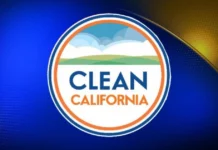Vidya Sethuraman
India Post News Service
Wildfires are bigger, heat waves more frequent, seas are warmer — climate change is speeding up, according to the EPA, making life harder for Americans. EMS briefing on June 18th featured speakers who provide their own and others’ research data tracking the indicators and impact of climate change on the U.S. and worldwide, and the need for an equity lens in policies that address it.
From Montana to California, much of the West is suffering from unusually high temperatures. Some 50 million Americans face heat-related warnings. Global warming, driven by the burning of fossil fuels, has been heating up and drying out the American West for years. Lake Oroville, the state’s second-largest reservoir and a key part of a network providing potable water to 27 million Californians, is 50 meters (165 feet) lower than in 2019.
Dr. Kristie L. Ebi, Professor for the Center of Health and the Global Environment, University of Washington, co-author of a new report on the impact of rising heat on mortality spoke on the heat wave and how it is preventable. Heat Waves kill more people than any other climate risk. Heat waves are the number 1 killer in the United States with respect to the weather. Yet the heat response has not gotten the attention it deserves.
Federal research is scant, for one thing. Unless actions are to be taken, mortality is going to increase in summer due to the intense and prolonged heat waves that we are facing now. According to Ebi, a mere 0.04% of the budget of the National Institutes of Medicine goes to topics related to climate and health. Action we can take range from turning on a fan to reducing your body temperature. With higher frequency of heat waves projected to occur as a result of climate change, locally tailored action plans are implemented in many affected areas to minimize harm to those most at risk. These plans, which may include early alerts and advisories and a variety of emergency measures to mitigate the heat dangers, are called “heat warning systems”. Green roofs provide shade, remove heat from the air, and reduce temperatures of the roof surface and surrounding air compared to the air conditioners which throw in excess heat into the environment, added Ebi.
Daniel Swain, Climate Scientist, UCLA; National Center for Atmospheric Research; The Nature Conservancy; Author: Weather West Blog spoke on the historic and devastating drought that looms in front of the Golden State California. We are currently surpassing the 2013 drought faced by the state. As California temperatures continue to rise while water reservoirs fall, the state could be in for a devastating summer.
Lakes at historically low levels, unusually early forest fires, restrictions on water use and now a potentially record heat wave: even before summer’s start the United States’ West is suffering the effects of chronic drought made worse by climate change, said Daniel. He said the water balance is very much off, more water gets evaporated and this situation has worsened due to prolonged heat waves. The drought is leading to extremely low soil moisture, which is making it easier for these high pressure systems to generate extreme heat waves because more of the sun’s energy is going into heating the atmosphere rather than evaporating nonexistent water in the soil.” The excessive heat and widening drought continues to elevate wildfire risk across much of the West, added Daniel.
Aradhna E. Tripati, UCLA Institute of the Environment and Sustainability said that mankind has begun to pay the price for climate change. Climate models show that climate change after the pandemic will be a devastating blow to low-income and minority ethnic groups. Some people can deal with climate change, but groups with insufficient resources are in a more difficult situation. She believes that ethnic minorities and underdeveloped areas should join in changing climate change decisions to make environmental protection policies more in line with actual needs.







